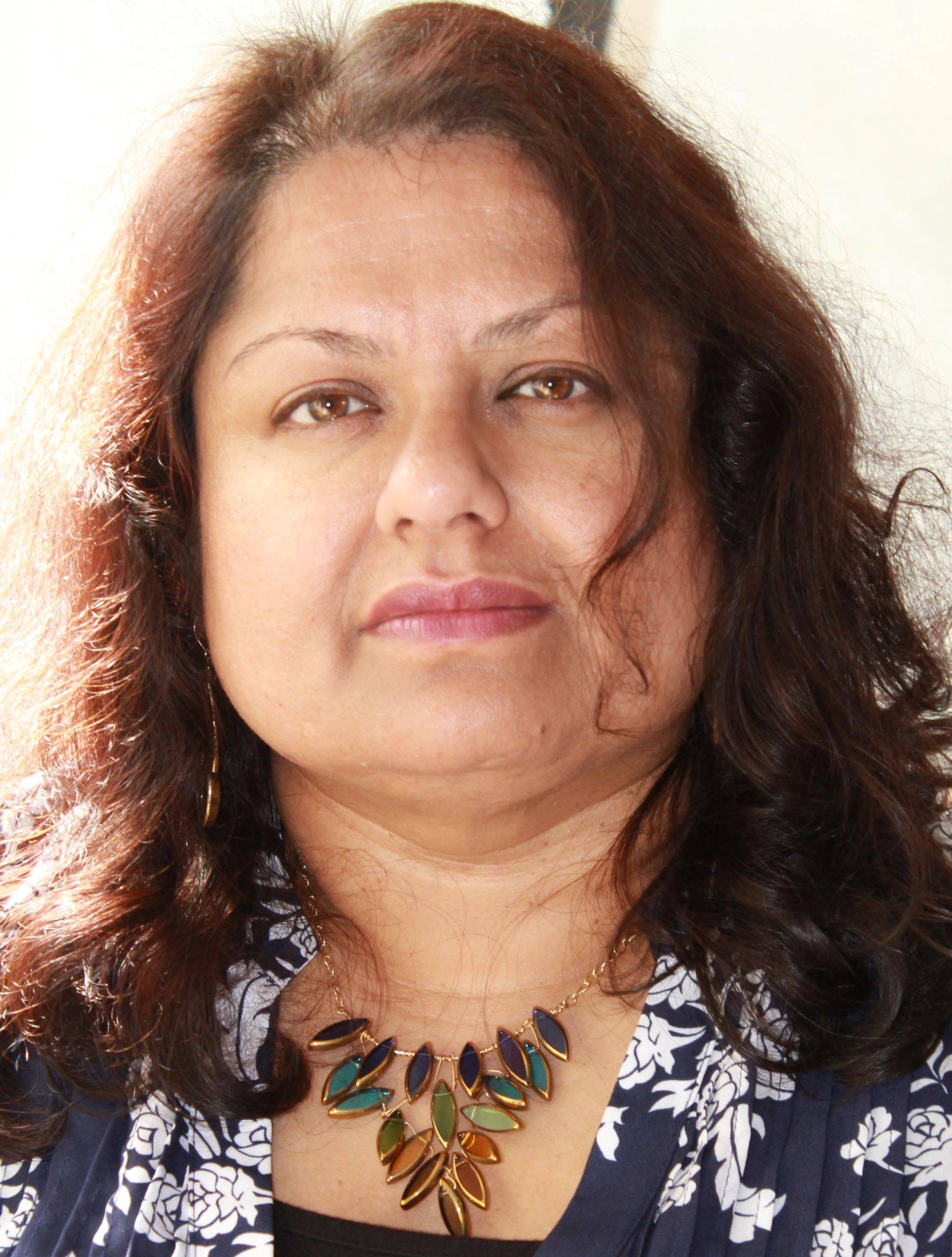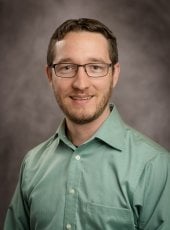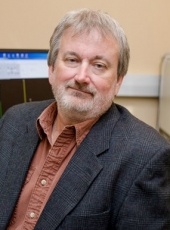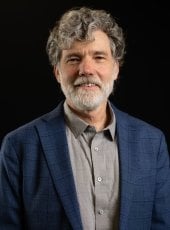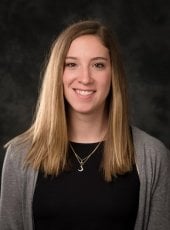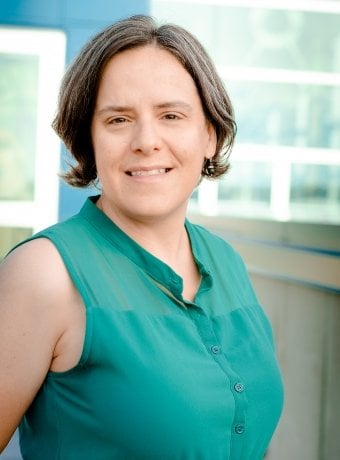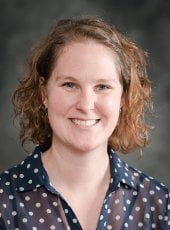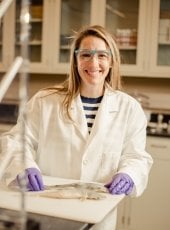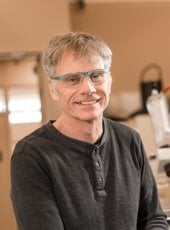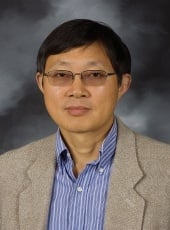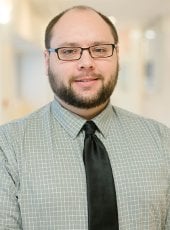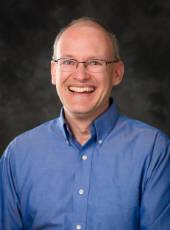Research in the Department of Biological Sciences is unique and ever evolving. Our department’s collaborative environment—along with Michigan Tech’s emphasis on research—fosters a wide variety of inter-university research projects. Faculty research strengths in biochemistry and molecular biology, ecology and environmental sciences, and health provide a strong foundation for many fields in biological sciences.
Our research centers, diverse research groups, and state-of-the-art facilities in the Dow Environmental Sciences and Engineering Building and Great Lakes Research Center create an exciting research environment with exceptional opportunities for students and faculty members alike.
Researchers
Biochemistry and Molecular Biology
Ecology and Environmental Sciences
Health
Research News
Researcher Focus
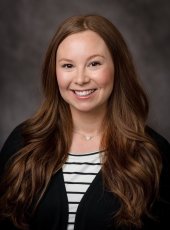
Claire Danielson
BS, Medical Lab Science, Michigan Technological University
Contact
cedaniel@mtu.edu
906-487-2120
- Medical Laboratory Science (MLS) Program Director
Claire attended Michigan Tech where she received a Bachelor's degree in Medical Laboratory Science (MLS). After graduation, she completed her clinical practicum at Hennepin County Medical Center in Minneapolis, MN. She has worked at the University of Colorado Health in Immunohematology, Microbiology, and Chemistry. She has also worked at Baraga County Memorial Hospital as a Generalist and Microbiology Supervisor. Claire returned to Michigan Tech to complete her Master's degree in Biological Sciences, Laboratory Management in 2019. She is currently the MLS Program Director, Assistant Teaching Professor, and Academic Advisor for the MLS program. She enjoys spending time outdoors with her family, . . .
- Professor, Biological Sciences
Dr. Datta's primary research interest lies in the application of plant biochemistry, genetics, molecular biology and microbiology in solving environmental problems,using phytoremediation, plant-microbe interactions and bioremediation. Dr. Datta's research involves the study of interactions between plant, soil, microbial and water systems to understand the mechanisms of uptake and detoxification of specific environmental contaminants in biota from two broad angles – biochemistry and genetics.
Specifically, Dr. Datta's current research focus is on the study of bioavailability of metal and organic contaminants in aquatic media and the potential of using plants to remediate contaminated sites, mediated by microbes. Dr. Datta actively collaborates with . . .
- Assistant Professor, Biological Sciences
In multicellular organisms, how do multiple cell types originate from one cell and one genome? A critical early cell fate decision is whether to develop as germline (reproductive) or soma (non-reproductive). My research focuses on assessing how the highly conserved DREAM transcriptional repressor complex maintains the germ vs. soma cell fate decision during embryogenesis. After a flurry of cell divisions from the starting “germ cell” (i.e. united egg and sperm), somatic cells begin to exit the cell cycle as the DREAM complex suppresses the proliferative germ cell program. This process is commonly reverted in cancer cells (i.e. a soma-to-germline transition) . . .
- Professor, Biological Sciences
Our work is centered on the cell wall and associated extracellular polymers of algae. We are interested in what these algal extracellular matrices can tell us about: 1) the evolution of the land plant cell wall, 2) the unique characteristics that allow for life in aquatic habitats, 3) the interactions within complex biofilms, including the heterotropic utilization of complex macromolecules, and 4) the biomineralization processes (ex. silica and calcium carbonate) associated with these extracellular polymers.
What is the broader significance of our work? The characters of plant cell walls determine the properties of innumerable products we consume every day. Our work has . . .

Erika Hersch-Green
MS, University of California, Davis - Population Biology
Contact
eherschg@mtu.edu
906-487-3351
- Associate Professor, Biological Sciences
Broadly speaking I am an evolutionary ecologist who studies how plants interact with their abiotic and biotic communities. My work integrates the theory and techniques from the disciplines of ecology, evolution, genetics, chemistry, and physiology. My research makes both fundamental and applied contributions and current projects include:
- deciphering the interplay between the abiotic environment (especially nutrient eutrophication and water availability), the genomic structure (genome size and composition) of terrestrial plants, and multitrophic communities (plants, herbivores, pathogens, pollinators),
- examining the efficacy of management efforts and the cultural, social, and ecological impacts of invasive plant (e.g., baby’s breath, Eurasian milfoil) and/or insect (e.g., Spotted winged drosophila on . . .
- Department Chair, Biological Sciences
Research conducted by my lab group is focused on ecology and restoration in aquatic systems including lakes, streams, coastal wetlands and the riparian ecosystems that connect them The research that my graduate students, our collaborators and I conduct tends to focus on ecological patterns and processes in systems influenced by human actions. In many cases we apply the learned scientific understanding to inform the restoration or rehabilitation of the system or population. Our projects are often motivated by this reciprocal interplay and exchange between restoration and the advancement of scientific understanding. Major projects have/are conducting examine 1) the ecology and . . .
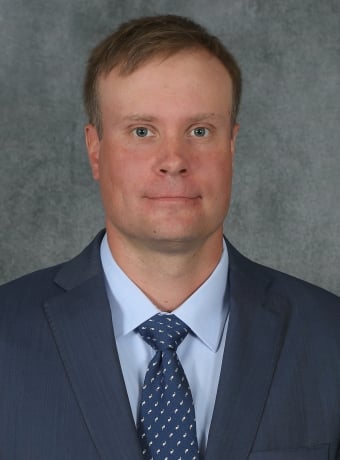
Robert Larson
PhD, Biological Sciences, Michigan Technological University
Contact
ralarson@mtu.edu
906-487-2254
- Assistant Professor, Biological Sciences
Robert earned his Master’s and PhD in the Department of Biological Sciences at Michigan
Technological University studying neural-cardiovascular physiology. He completed his Post-
Doctoral fellowship in neurocardiology at The University of Iowa Carver College of Medicine
where he studied cardiac sensory and sympathetic nerves in hypertrophic cardiomyopathy and hypertension. Prior to graduate school, Robert worked in the diagnostic laboratory at Aspirus Keweenaw Hospital serving as both a Generalist and Hematology and Coagulation Supervisor.
- MLS Program Coordinator
- Professor, Biological Sciences
I am an ecosystem ecologist with interests in energy and biogeochemical cycles in freshwaters. My research program blends basic and applied research, and integrates across aquatic habitats including stream, river, wetland, lake littoral zones and the nearshore regions of the Great Lakes. My past and future research trajectory is governed by an interest in understanding the role of small, poorly quantified fluxes or perturbations on ecosystem processes, and in linking those ecosystem processes to the underlying structure of microbial, algal, macrophyte and animal communities.
One benefit of an academic career is the synergy between an active research program and undergraduate and graduate . . .
- Associate Teaching Professor, Nursing, Biological Sciences
Mark was raised in Baraga, MI, spending his adolescence learning about auto mechanics in his father’s service station, a skill he has always valued, and uses to this day. Mark left the area while employed by Glasrock Home Health Services, living in Green Bay, WI and the Bay Area of California, while serving as branch manager or materials manager, in both areas. Upon returning, he attended Suomi College, graduating in 1994 with an Associate Degree in Nursing. Following graduation, he was employed by Portage Hospital in Med/Surg and ICU, worked several years in Correctional Health at the Baraga Maximum Security . . .
- Teaching Professor, Biological Sciences
Brigitte attended Michigan Tech in 2001 where she received a Bachelor's degree in Medical Laboratory Science (MLS), as well as a certificate in Secondary Education and minors in both General Science and Spanish. Following graduation in 2006, Brigitte taught high school Biology for six years in Illinois. After receiving an MS degree in Biology from Northern Illinois University, Brigitte has returned to Michigan Tech as a lecturer, primarily in the MLS program.
- Assistant Professor, Biological Sciences
I am a community ecologist who studies the processes that affect the structure and stability of ecosystems. I study these issues in coastal marine and freshwater ecosystems due to the diversity and economic importance of species inhabiting these environments and toward the fact that they are under threat from anthropogenic influences. I use food web, community assembly and fisheries theory to explore the following research areas; (1) the intra- and inter-species interactions and trophic structuring of communities within a hierarchical construct; (2) the distribution patterns of organisms and the mechanisms that drive these patterns and; (3) the relative influence of . . .
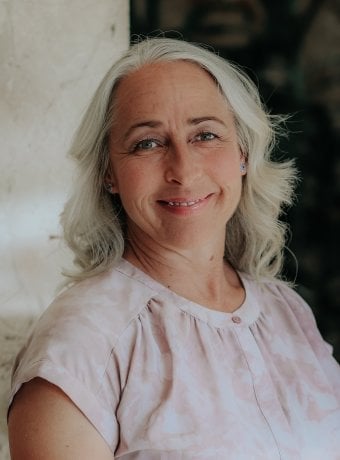
MarnieAnn Polkky
MS, Nursing, Indiana Wesleyan University, 2019
Contact
mpolkky@mtu.edu
906-487-3532
- Assistant Teaching Professor, Nursing, Biological Sciences
As a first-generation college student having an eclectic education in veterinary, holistic, and human medicine, I came to nursing later in life. A graduate of Finlandia University’s BSN program in 2015, led me into my career as a staff registered nurse at Aspirus Laurium Hospital on the medical/surgical unit and quickly realized an interest in teaching after orientating new staff nurses. I began as a clinical instructor for Gogebic Community College in 2017 and completed my masters in nursing education from Indiana Wesleyan University in 2019. As an Assistant Professor at Finlandia University from 2019-2023, I’ve gained experience in teaching . . .
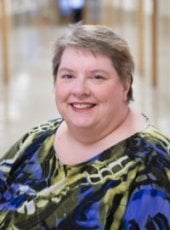
Theresa Rajala-Halsey
MS, Nursing, Concentration: Leadership and Management, Walden University, 2007
Contact
trajalah@mtu.edu
906-487-3534
- Associate Teaching Professor, Nursing, Biological Sciences
Theresa has close to 40 years of nursing experience in the areas of acute care and nursing education. She began her nursing career in 1985, graduating with an Associates Degree in Nursing from LSSU in Sault Ste. Marie, Michigan. She worked as a staff nurse, working in various units throughout the hospital. In 1986, she took a position on the Cardiac Unit at William Beaumont Hospital in Royal Oak, Michigan. There she worked as a staff nurse. She was a member of the charge nurse team, taught a rhythm interpretation class for new employees and trained to be the BLS . . .

Irina Sergeyeva
MSN, Health Care Education, University of Phoenix
Contact
igsergey@mtu.edu
906-487-3539
- Associate Teaching Professor, Nursing, Biological Sciences
Irina has been a nursing educator and academic advisor for over eight years. While working at the College of Health Sciences, Finlandia University, she received a Rising Star Faculty Award from the Board of Trustees recognizing her contribution to teaching and service. Beyond working in the academic field, Irina has been serving the local community her entire nursing career by carrying out volunteering responsibilities as a Sexual Assault Nurse Examiner (SANE) at Dial Help, Inc. and performing nursing duties of care in varying settings of the modern healthcare system. These include but are not limited to the orthopedic clinic at . . .

Lori Sullivan
DNP, Organizational Leadership, Graceland University
Contact
lasulliv@mtu.edu
906-487-2850
- Nursing Program Director
Lori has over 25 years of nursing experience in various roles including staff nurse, unit coordinator, utilization review coordinator, community educator, case manager and nurse educator. She received her Bachelor of Science in Nursing from Northern Michigan University in 1996, Masters of Science in Nursing Education from Fort Hays State University in 2011, and Doctor of Nursing Practice from Graceland University in 2014. After several years working in hospital and community settings, Lori began her career in academia in 2007. Her research projects have focused on NCLEX success and development of clinical reasoning in undergraduate nursing. She is currently the . . .
- Professor, Biological Sciences
Future Research Directions for Collaboration
<<Seek National Collaborations>>
Welcome to those who would like to collaborate with me to pursue innovative project funds from NSF! Contact me via email please for potentials. Tenure-track assistant professors are especially welcome! We have experience in pursuing and leading multi-institutional NSF Plant Genome project on microRNAs using short tandem target mimic (STTM) technology. Future directions will be:
- Large-scale targeting microRNAs for regulations in fruit crop stress biology.
- Trans-species spreading of microRNAs and STTMs in plant grafting biology.
Interested PI and co-PIs with relevant expertise are welcome to connect with me to target NSF bigger ideas in PGRP. Please Contact Dr. Guiliang Tang.
Biography
Dr. Tang conducted his graduate research on the catabolic pathway of the essential amino acid lysine in the laboratory of Dr. Gad . . .

Xiaohu (Mark) Tang
PhD, The Weizmann Institute of Science
Contact
xiaohut@mtu.edu
Phone: 906-487-3068
- Associate Professor, Biological Sciences
At the intersection of cancer metabolism and functional genomics, our laboratory is dedicated to deciphering the complexity of cancer metabolic deregulation and the impact of metabolisms in cancer onset and progression. Our relentless pursuit is to unravel the intricate underlying mechanisms, which serves as the foundation for our exploration of innovative and practical therapeutic applications for patients. Additionally, our in-depth understanding of the interactions between diet and cancer has the potential to pioneer strategies for proactive, long-term cancer prevention.
- Professor, Biological Sciences
Diabetes is caused by either the loss of the insulin producing beta cells in the pancreas, leading to a deficiency of insulin (type 1 diabetes), or insulin resistance, reduced insulin sensitivity, and reduced insulin secretion (type 2 diabetes). In both types of diabetes, the patients develop serious secondary complications, such as microvascular complications, oxidative stress and endothelial dysfunction, cardiovascular disease, and kidney failure.
MicroRNAs (miRNAs) are newly discovered, 21-24nt in size, non-coding RNAs. miRNAs negatively regulate the expression of protein-coding genes by binding to the 3'-untranslated region (3'-UTR) of specific targeted gene transcripts (mRNAs). Each miRNA regulates the expression of hundreds of . . .

Stephen Techtmann
PhD, Molecular and Cell Biology, University of Maryland, Baltimore MD
Contact
smtechtm@mtu.edu
906-487-3250
- Associate Professor, Biological Sciences
I am an environmental microbiologist who studies microbial communities in diverse ecosystems. Microbes (Bacteria and Archaea) are ubiquitous in the environment and play essential roles in the cycling of elements. These environmental microbes are capable of catalyzing a wide array of chemical reactions, many of which may have industrial applications. I study how complex microbial communities can cooperate to perform functions of industrial interest. The majority of microbes in the environment are difficult to grow in the lab. Furthermore, many industrially-relevant pathways are found in microbes not yet grown in the lab. I seek to employ both culture-based and culture-independent . . .
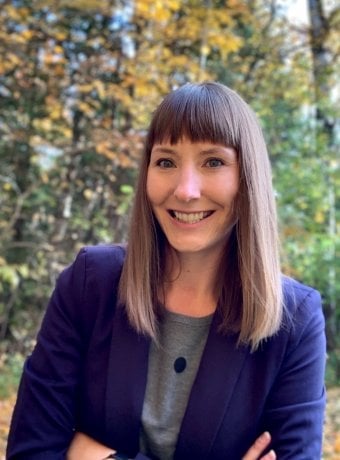
Trista Vick-Majors
PhD, Ecology and Environmental Sciences, Montana State University
Contact
- Assistant Professor, Biological Sciences
I am a microbial ecologist who studies the reciprocal relationships between microbial communities and biogeochemical processes in aquatic ecosystems. Microorganisms are widespread in the environment and are responsible for driving key elemental transformations that control the quality of our water and influence the greenhouse gas concentrations in our atmosphere. I am interested in understanding how physical and chemical characteristics interact with microbial communities and influence or are influenced by microbial metabolism and diversity. My work is also aimed at understanding energetic constraints on microbial metabolism that may result from ecosystem change or seasonal change, such as the formation of ice-cover. . . .
- Assistant Teaching Professor, Biological Sciences
Travis is a proud born and raised Yooper; he received both his B.S. and M.S. in Biological Sciences from Michigan Tech. Wanting to stay close to home, he joined his alma mater as the Department of Biological Sciences Laboratory Supervisor in 2017. Since then, he has become an Academic Advisor and Lecturer.
In his position as an academic advisor, Travis helps students to understand academic policies and procedures, select courses to fulfill their academic goals, locate and use campus resources, and explore career options. Travis is trained in Mental Health First Aid and serves as a Career Coach and a member on the Title IX Awareness Committee. In addition to advising, Travis teaches several courses in the . . .
- Professor of Genetics and Developmental Biology, Biological Sciences
Dr. Werner became interested in the question "What is life?" as a four-year old child in his parent's garden in former East Germany. At the age of 10, he began to develop a life-long interest in the biology of butterflies and moths. He has been breeding and collecting them ever since. For his Master's thesis, he decided to shift his focus to molecular biology because this was a newly emerging field of biology that promised new jobs.
Thus, Dr. Thomas Werner studied the human heart disease-causing virus Coxsackie B3 at the molecular level at Friedrich-Schiller-University Jena in Germany. After the fall of the . . .
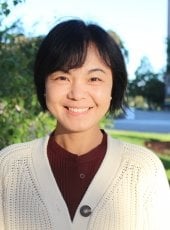
Yan Zhang
PhD, Pharmacology and Toxicology, University of Missouri-Kansas City
Contact
yzhang49@mtu.edu
906-487-2546
- Research Assistant Professor, Biological Sciences
Autosomal dominant polycystic kidney disease (ADPKD) is the most common, potentially lethal genetic disorder characterized by the progressive enlargement of numerous fluid-filled cysts and the development of interstitial inflammation and fibrosis. ADPKD is caused by the mutation of PKD1 or PKD2 gene. Approximately 50% of patients progress to end-stage renal disease by middle age and require dialysis or renal transplantation. Currently, treatment options for ADPKD patients are limited; thus, the development of new effective therapies is urgent. Dr. Zhang’s research lab investigates the role of innate immunity in the pathological microenvironment of ADPKD and the potential therapeutic effects of manipulating . . .


